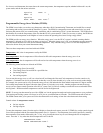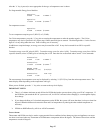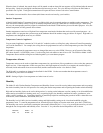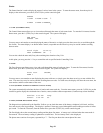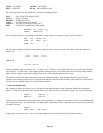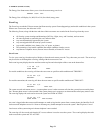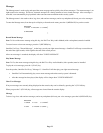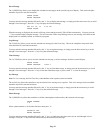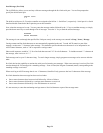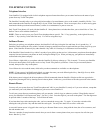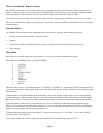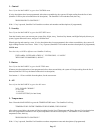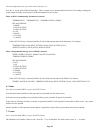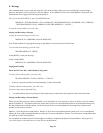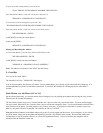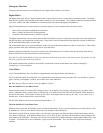Page 34
Send Message (Pro-Link)
The 6 (SEND) key allows you to send any of the text messages through the Pro-Link serial port. You are first prompted to
specify the desired serial port.
SERIAL PORT:
1-4
The built-in serial ports (J1-J3) on the controller are assigned to Serial Port 1 - Serial Port 3, respectively. Serial port 4 is a Serial
Interface Module connected to the Expansion port on the controller.
Next, select the message to be sent. You may enter the message number followed by the ' # ' key to send that message, or simply
press the down arrow key to scroll through a list of messages. Press the ' # ' key to send the selected message:
MSGNAME
ENTER MESSAGE:
↓
The message is sent out through the specified Pro-Link port exactly as the message was entered in Setup | Names | Message.
Carriage returns and line feed characters are not automatically appended to the end. To send ASCII control as part of the
message, use the caret "^" character in the message. This character specifics that the next character is to be interpreted as an
ASCII control character, such as "^M" to represent a carriage return.
Other useful sequences would be "^J" for a line feed character and "^G" for a bell character. To include an actual "^" character in
the message, enter it twice as in "^^".
Each message can be up to 15 characters long. To send a longer message, simply program two messages to be sent one after the
other.
Pro-Link also has the capability to monitor the serial port for incoming text messages. When a text message is received, Pro-Link
searches through all 128 messages for a matching message. If one is found, the Program Command (macro) corresponding to the
matching message is activated.
When receiving an ASCII message that is over 15 characters, OmniPro II only processes the last 15 characters of the message.
Pro-Link determines that a message has been received when:
• One or more characters have been received followed by 100 ms of silence
• One or more characters followed by a carriage return character are received
• One or more characters followed by a line feed character are received
It is not necessary to enter the terminating carriage return or line feed character as part of the message name.



